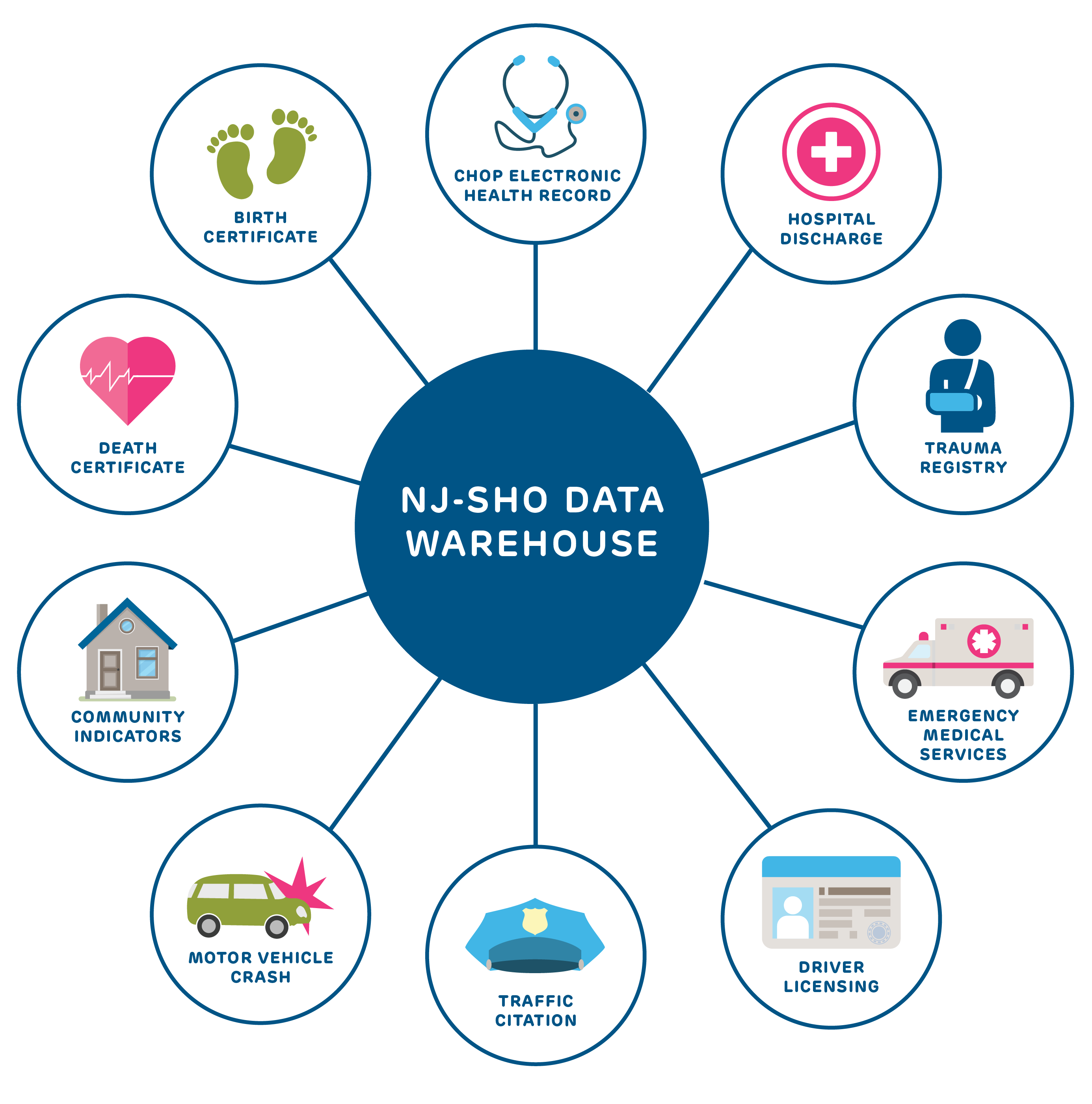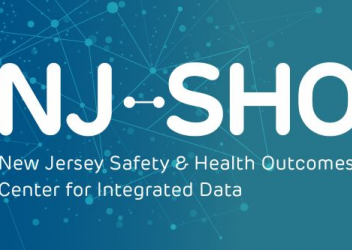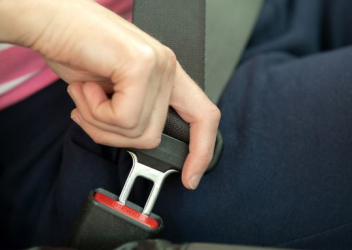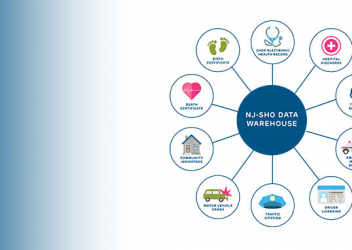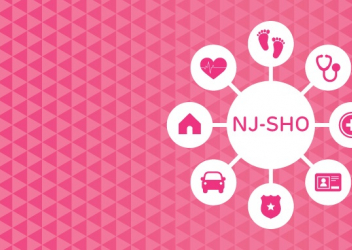New Jersey Safety and Health Outcomes (NJ-SHO) Data Warehouse
The New Jersey Safety and Health Outcomes (NJ-SHO) Data Warehouse is being used by CIRP researchers and collaborators to advance safety and health research through novel administrative data linkages. Led by Allison E. Curry, PhD, MPH, the research team developed a comprehensive data warehouse that integrates various New Jersey statewide administrative databases.
This unique data source contains information spanning the pre-injury period to the post-injury period, supporting critical, high-priority research questions on injury prevention. Researchers are also analyzing the NJ-SHO Data Warehouse to address novel questions in other areas of population health.
This comprehensive data warehouse of linked administrative datasets has longitudinal information on 24 million individuals of all ages spanning almost 20 years. Data sources include six statewide administrative databases and individual- and community-level equity indicators, enabling rigorous investigation of injury and non-injury outcomes.
Development of the NJ-SHO Data Warehouse
The NJ-SHO Data Warehouse allows us to fill numerous important gaps in safety and health research. Initially, we focused on creating a resource that would enable the field of motor vehicle safety to address critical, high-priority research questions. We utilized licensing, crash report, and traffic-related citations data, along with childhood electronic health records and census tract-level indicators, to conduct innovative research. These studies have uniquely advanced our foundational understanding of drivers and their crashes, directly impacted driver safety policy, and proposed novel traffic safety methodologies.
Since 2017, we have updated the initial databases with the most recent data and added three additional statewide databases maintained by the New Jersey Department of Health: birth certificates, death certificates, and hospital discharge data. To integrate these databases, we conducted a large probabilistic linkage that included all identifiable individual-level records from all databases (including those previously linked in the initial development of the NJ-SHO Data Warehouse).
The resulting NJ-SHO Data Warehouse includes all distinct individuals who appear in one or more original database and contains all records associated with those individuals.
Powering A New Data Dashboard
The new NJ-SHO Center for Integrated Data's public-facing website and people-focused data dashboard, powered by the NJ-SHO Data Warehouse, is reimagining how safety and health data are collected, integrated, analyzed, and shared to support safe transport in NJ.
Dozens of scientific papers have been published using this innovative research tool, and numerous studies are underway.
Visit The NJ-SHO Center for Integrated Data Website

